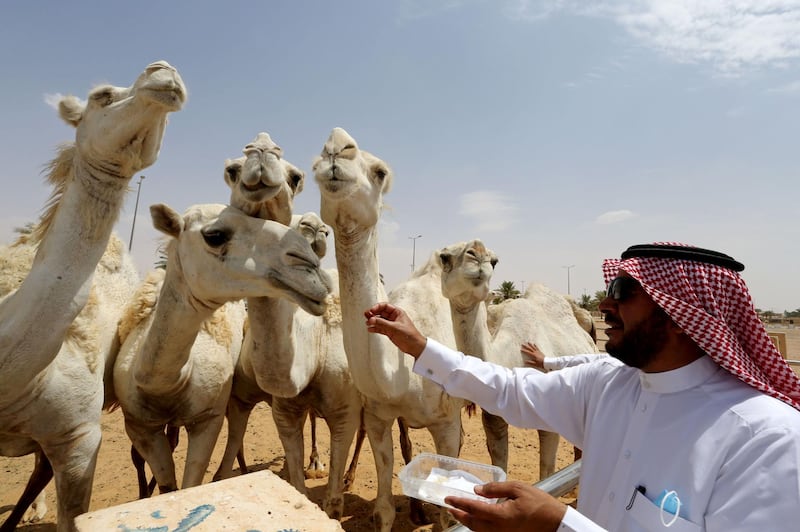Four new cases of Mers, including two deaths in the Middle East, have been reported to the World Health Organisation.
In a twice-a-year update on the Middle East Respiratory Syndrome Coronavirus (MERS-CoV) – a disease typically transmitted by camels – four confirmed cases were reported by the Saudi Arabia Ministry of Health in Riyadh and the Eastern and Qassim regions of the kingdom.
The deaths occurred between October 19 and December 24, 2023, while all four of those involved, two men and two women aged 59 to 93, had other health conditions.
Each developed symptoms including fever, cough and shortness of breath, with the last infection reported on October 26.
Despite the fatalities, the WHO has not changed its overall public health guidance for Mers, with the risk viewed as moderate regionally and internationally.

The virus is known to circulate in dromedary camels, with those working with the animals most exposed, particularly anyone with a medical condition.
One of the recent cases was a camel owner, and another had a history of indirect contact with dromedary camels as their relatives were owners.
The other two cases had no clear history of exposure to known risk factors, nor had they consumed raw camel milk in the 14 days before onset of symptoms.
There are no known epidemiological links among the cases, and no secondary cases of the virus have been identified.
The camels in contact with the infected humans did not show symptoms of the virus.
Advice has been issued around the world to educate travellers to the region on the risks associated with direct contact with the animals.
In Hong Kong, the government’s Centre for Health Protection advised tour operators to restrict camel rides for tourists.
“We will maintain close communication with the WHO and relevant health authorities,” a CHP spokesman said.
“As countries in the Middle East, particularly Saudi Arabia, continue to report Mers cases from time to time, travellers should refrain from going to farms, barns or markets with camels and avoid contact with sick persons and animals, especially camels, birds or poultry.”
Third of infections fatal
Since the first Saudi report of Mers in 2012, a total of 2,609 cases have been diagnosed, including 939 deaths.
Globally, there have been reported cases in 27 countries although there have been none outside the Middle East since 2019.
Of all known cases of Mers since 2012, 36 per cent of patients died.
However, this could be an overestimate of the mortality rate, as mild cases of the virus may be missed by surveillance systems.
The case fatality ratio is calculated based only on laboratory-confirmed cases.
Camels are the natural zoonotic source of the Mers virus, which has demonstrated an ability to spread to humans.
Although no vaccine or specific treatment is available, the number of WHO reported cases has substantially fallen since the beginning of the coronavirus pandemic – a result of better surveillance of similar viruses, and improved public hygiene awareness.







